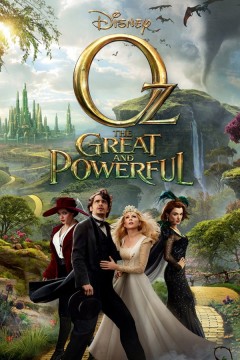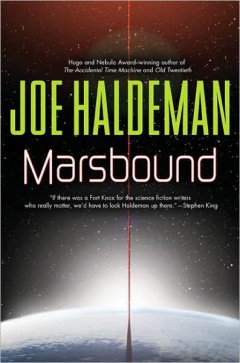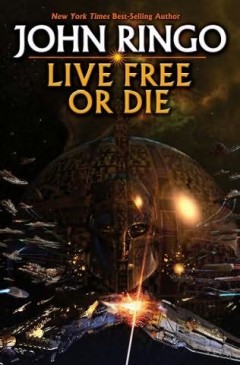The Android’s Dream, a novel by John Scalzi, is a science fiction tale that takes place in the not too proximate future. This was my first experience with Mr. Scalzi, and I came away impressed enough to want to read other titles by him that have garnered more acclaim. There are a variety of different tones and elements in the present novel, in use of which Scalzi demonstrates talent. He can be funny, clever, action-oriented, and even, on occasion and to a small degree, poignant. I was not always convinced by the way he mixed these different tones together, but overall the novel was a fun read. Scalzi exhibits the flair of a true storyteller with his well-refined and polished plot and cast of diverse characters.
The title refers to a line of specially bred sheep, named in honor of Philip K. Dick one supposes, which become the object of a hunt to prevent an intergalactic war. When a group of men of varying interests conspire to insult an alien diplomat during trade negotiations, the blowback leaves Earth on the brink of war. As things get increasingly out of hand — to the point where even the original conspirators begin to doubt the course they have plotted — an agent of the American government must find an Android’s Dream sheep to offer to the aliens, as appeasement, so they can sacrifice it in an important ceremony.
I do not know whether or not Scalzi has written sequels or other novels in this world, or if he plans to, but he has a knack for world creation that would seem to leave a lot of room for future work in this universe. There are different alien species with odd customs and cultures, eccentric politics, a variety of characters, and a number of odd social developments (including a religion devoted to Evolved Sheep whose adherents belong to one of two categories: true believers, and those with a sense of humor who want to make the Church’s prophesies come true for the fun of it). The message is not profound and the characters are not explored in the kind of depth that makes them stick with you long after you have closed the book for the last time, but the story is coherent, moves well, and provides a few interesting twists that give it a little kick at the right time.
[continue reading…]
Help Promote Prometheus Unbound by Sharing this Post

In episode three of the Prometheus Unbound Podcast, Matthew and I have a fantastic interview with the wonderful Jeffrey Tucker, editor of Laissez Faire Books. It’s a long one, about an hour and fifteen minutes, and we knew you’d be eager to listen to Jeffrey, so we wasted no time with chit-chat and got right down to business. We covered a number of topics ranging from LFB, intellectual property, and Jeffrey’s favorite fiction.
We started off by asking Jeffrey Tucker what it’s been like working for a commercial publisher and bookseller after having worked for a nonprofit educational institution, the Ludwig von Mises Institute, where he was editorial vice president, for so long.
Then we went on to talk about the business model of Laissez Faire Books and the role of the publisher in the digital age as a curator and service provider (curation as a service); the compatibility of open source and business; intellectual property; the nature of competition; how many entrepreneurs and businesses misidentify the source of their profitability and don’t understand why people buy their goods or services; how copyright has held back the publishing industry; and markets as institutions of teaching and learning.
[continue reading…]
Help Promote Prometheus Unbound by Sharing this Post

In episode two of the Prometheus Unbound Podcast, Matthew and I (Geoffrey) discuss libertarian speculative fiction and introduce the Book of the Month, Today’s Tomorrows Writing Prompt, and Fiction Forecasts segments of the show.
We break the ice with some brief chit-chat about what we’ve been reading before seguing into our discussion of libertarian spec fic. The Book of the Month is Coyote by Allen Steele. In Today’s Tomorrows Writing Prompt, we turn a speculative eye on the very real possibility of an intellectual-property dystopia. And in Fiction Forecasts, we talk about upcoming (at the time of recording) television shows, movies, and books.
What We’ve Been Reading
Libertarian Speculative Fiction
We covered a lot of ground in our discussion of libertarian spec fic, but we really only scratched the surface of this broad, deep, and no doubt controversial topic. I’m sure we’ll be revisiting many of the stories and issues we covered, and many more besides, in future episodes. So subscribe and stay tuned!
Here’s a brief rundown of some of the things we covered: what qualifies a work of fiction as libertarian; libertarian themes in science fiction and fantasy; why they seem to be more common in science fiction and why libertarians seem to favor this genre; our favorite works of libertarian spec fic; the Prometheus Awards; and probably more that I’m forgetting as I write this.
[continue reading…]
Help Promote Prometheus Unbound by Sharing this Post


It seems that every classic is to have an entourage. The loneliness of such films as Alien, Star Wars, and King Kong is too much to bear for the hearts of movie execs, so companions are made for them. Sequels, prequels, remakes, and spinoffs are what Hollywood does most, though not necessarily best. At times, this proclivity has born sweet fruit. Though sequels are rarely as good as the original, if the original was any good at all, there have been some smashing successes. Even remakes have some achievements to be noted. I am, however, unaware of a prequel or a spinoff whose makers could hold their heads high and proud once their creation hit the silver screen. Oz the Great and Powerful, a prequel to the 1939 classic The Wizard of Oz, is unable to break out of this trend and be the first.
Set some years before the events of Victor Fleming’s work, it tells the tale of the wizard himself, a travelling magician from Kansas making a meager, day-to-day living. A magician is a trickster, of sorts, and Oscar Diggs (James Franco) has a character well suited to it. Though one gets the sense that at his core he is not entirely amoral, he lies to friend and stranger alike. He lusts after money and women, whom he tricks for his own benefit.
It is this very duplicity in his nature that gets him running from trouble and sets him on course for Oz. After flirting with the wife of a circus strongman, he escapes the enraged husband in a hot air balloon just as a tornado begins to ravage the landscape. As happened in the original film to Dorothy, the tornado transports him to the magical Land of Oz. There, he meets Theodora, a witch played by Mila Kunis.
[continue reading…]
Help Promote Prometheus Unbound by Sharing this Post


Joe Haldeman began a series with the book Marsbound. Like his other books that I have read, it starts quickly, wastes little time with descriptions, treats people mechanistically, with little emotion or soul, but tells an interesting tale. Marsbound is less entertaining than The Forever War and Forever Peace, but it is still a decent read.
The story begins on Earth, where a university student named Carmen Dula and her family are waiting for a taxi. They are on their way to Earth’s space elevator, which over the course of several days will take them up to a spaceship, which in turn will take them to Mars where they will be staying for the next five years. That is, unless something unexpected pops up.
Carmen gets on the wrong side of the bureaucratic leader of the Mars colony before she even arrives. One night, stinging from a punishment meted out to her and feeling rebellious, she goes for an unapproved walk in her Mars suit. While out, she injures herself and cannot get back. On the verge of death, she is visited by a strange creature who saves her…
[continue reading…]
Help Promote Prometheus Unbound by Sharing this Post


In 2010, John Ringo published the first book of the Troy Rising trilogy. Titled Live Free or Die, it is a story on a grand scale, a great symphony of a book but by an author who probably should stick to bagatelles. Though it started well and had my interest, it was a chore to get through most of it. There was enough creativity and verve for a short story, but by the end these had faded and I was glad to be finished.
It is the kind of story I imagine Ted Nugent would enjoy reading. Filled with gun-toting, rugged individuals who thrive on infuriating the Thought Police and composing odes to capitalism, the book might almost seem libertarian until one realizes just how besotted with militarism and American exceptionalism the author is. I have no problem with a man a bit rough around the edges, a touch short on couth and decorum, but Ringo at times goes beyond that into deliberate callousness, especially as regards sex and race.
There are many sensitive liberals who both need and deserve a little rattling from time to time, if only for our amusement, but there are just as many conservatives who could use a dose of circumspection, introspection, and nuance. I am tempted to suggest we lock Ringo in a room with his diametric opposites, to see if there might be a mutually beneficial rubbing off, but I am afraid someone would end up dying.
Live Free or Die begins with an alien race that establishes a portal in our solar system. They have no goals except to neutrally manage the portal, but the next race that appears is bent on imperial control of Earth. They begin by destroying some major cities and then demanding tribute. Though this species, the Horvath, is technologically backwards in comparison to other civilizations in the galaxy, they are yet far ahead of humans.
[continue reading…]
Help Promote Prometheus Unbound by Sharing this Post


Steven Soderbergh’s latest film, Side Effects, uses the modern themes of high finance and psychiatry to fashion a plot that grows increasingly riveting as the story unfolds. The script features some very classic elements of tale-spinning executed with adroitness, while the director’s realistic, subtle style makes a great complement. What is more, there are all kinds of themes and subtext of interest to the libertarian, who will nod knowingly throughout the film, even if the filmmakers take a neutral position and give no indication whether they are too.
There are a number of plot points that pull the rug out from underneath the viewer, turning points that completely alter what the movie appears to be about. By the time we find out the true nature of the story, a few of these twists have already occurred. This makes it difficult to know how to summarize the film.
The movie is a suspense thriller of sorts, but distinct from most thrillers in the way it is executed. Soderbergh does not use slow-motion, close-up cuts or insistent music to belabor points and hit the audience over the head. He films and edits in a simple, subtle style. This is not to say that the movie is hard to follow, but Soderbergh does treat us like adults. When a character is dissimulating, for instance, this fact will not be spoonfed to the viewer. There will be no close-up of the actor’s face as he makes the kind of expression that has come to be a clue that he is tricking someone, the kind of expression that, if a person made it in real life, would instantly give him away.
[continue reading…]
Help Promote Prometheus Unbound by Sharing this Post















